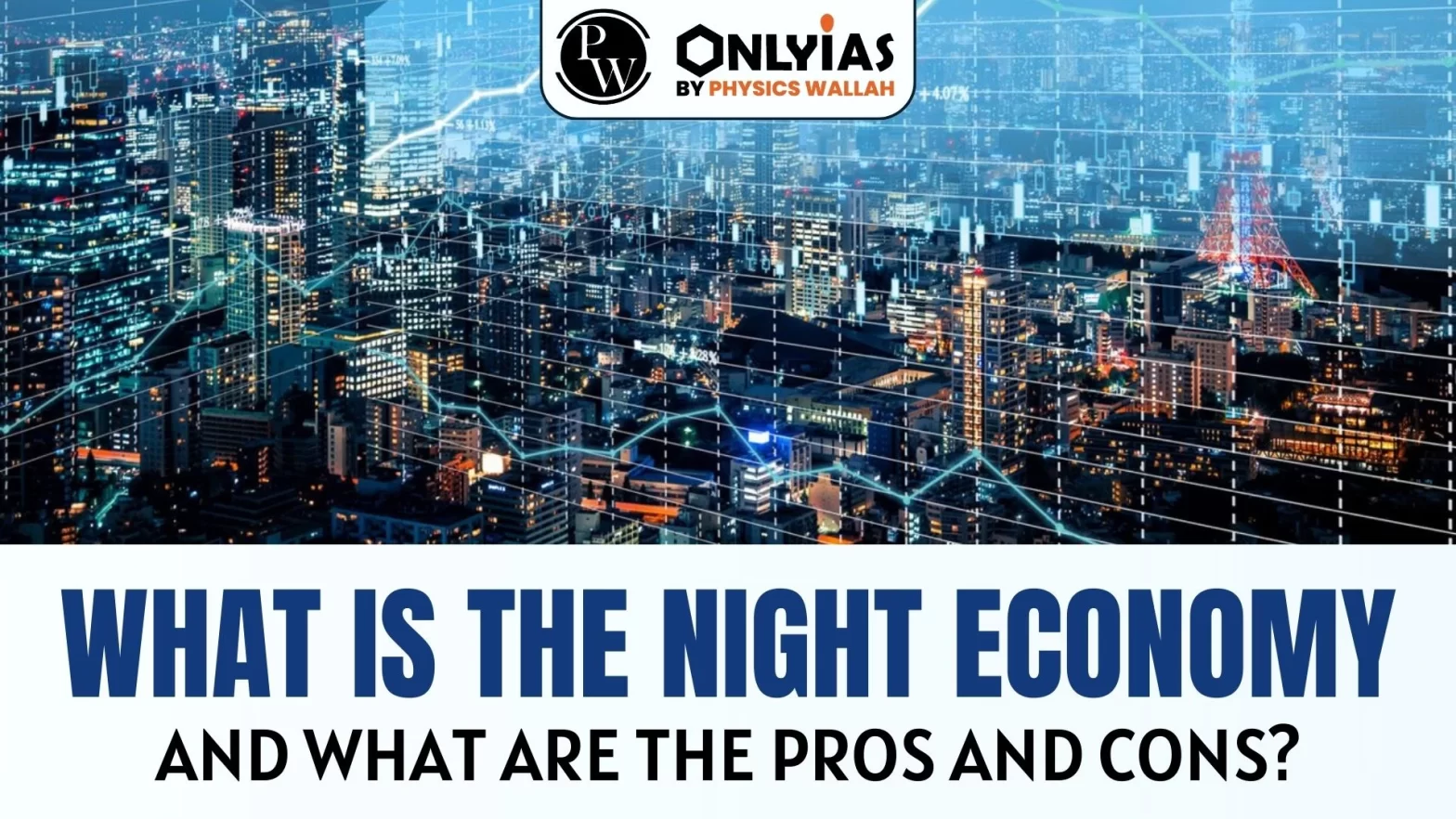Context: This article is based on an Editorial “Do we really need night economy?” Which was published in the New Indian Express. It has been intended by states to develop the Night Economy. It means economic activities beyond the regular daytime working hours.
| Relevancy for Mains: Growth and Development: What is the Night Economy: Associated Challenges and Significance. |
What are the pros of the Night Economy?
- Job Creation: The new economy could produce additional employment opportunities.
- Additional Business: The hospitality and entertainment sectors may see an increase in revenue.
- International Inspiration: Cities like London and New York attribute 6-8% of their economy to night-time hours.
What are the cons of the Night Economy?
- Not Environment-Friendly: The increase in energy needed to keep outlets open at night and the light pollution already present in big cities are major issues.
- Impact on Sleep: Artificial light impacts our sleep cycle, which can lead to health problems. It can also negatively impact biodiversity.
- Security Challenges: The night economy would require additional security measures, putting more pressure on state agencies and taxpayers.
Legal Hurdles and Market Size:
- Mumbai and Bangalore: Data shows that eased legal restrictions did not encourage traders to stay open for longer hours.
- Niche Markets: Something like Bangkok’s night flea markets or traditional night markets would have been a better option than opening shopping malls at night.
- Total Addressable Market: The market size is small, making it questionable to justify adding staff and likely night allowances.
The Importance of Culture and Safety in India:
- Cultural Landscape: The Western lifestyle may not fit with our cultural values and wellness goals.
- Safety Perceptions: There needs to be a focus on improving safety, particularly for women.
- Socio-Cultural Review: A well-rounded socio-cultural review is necessary to design a night economy that works for India.
Night Activities in India:
- Night Markets: Small street-food markets like Indore, Ahmedabad, or Bengaluru.
- Fairs and festivals that allow us to enjoy night-time activities.
- Clubs and Institutes: Elite clubs in urban districts.
- Nooks of the cities open till late at night around educational institutes.
- Traditional and New Festivals: Includes both traditional Jatras and new-age festivals like musical nights.
Is Night Economy Necessary?
- Not Enough Benefits: The benefits are insufficient to justify the added requirements for staff transportation, safety measures, and other costs.
- Small Market Size: The small ‘Total Addressable Market’ makes it questionable to extend business hours.
- Culture and Safety: There needs to be a focus on improving safety and a well-rounded socio-cultural review is required to design a night economy that works for India.
Conclusion:
India must carefully consider the true benefits of a night economy. Improving safety and considering the socio-cultural landscape is key. The focus should be on creating enjoyable night activities that work for India, not just following Western trends.
![]() 4 Dec 2023
4 Dec 2023

